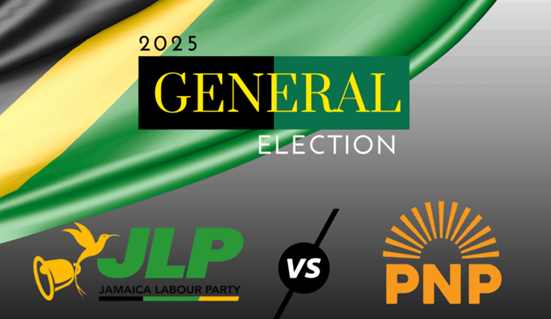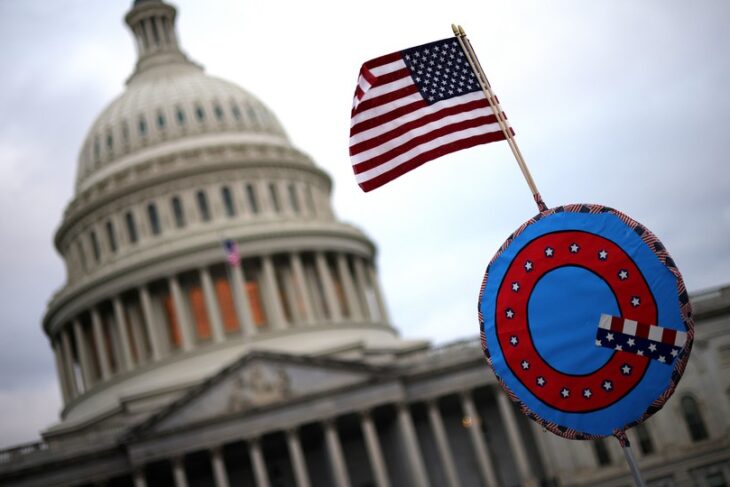
The election campaign is over at the time of writing, the rallies are over, the blares of horns and bells are now just a dull hum in the night. All over, orange and green drape the land, on trees are cloth rags in the colours of the two major parties, and on the radio we catch the final campaign promises. This election truly has been big on promises, a change is coming regardless of who wins, is the slogan, but while we are spoiled for promises on both sides, there is little detail in how these promises will be kept or implemented.
As a neutral, one who has no foot in either camp, the debates were fun. The first debate was hit or miss, but the second debate with Peter Bunting vs Chris Tufton was must-watch TV. The barbs thrown at each other will be mined for memes for aeons. Insinuations of ill-got wealth and facts about being robbed while on vacation were hilarious, but the debate which stole the show was Andrew Holness vs Mark Golding.
Andrew looked rattled, more shaky than he has looked since first debating Portia Simpson Miller; that may be an indicator that all is not right at Belmont Road, and the election is confirmed to be a close one. Mark, if we are honest, looked calm and in charge, and the bringing out of his birth certificate was the highlight. While he did look in charge, he at times struggled to think on his feet, and that may be an indicator of how a future administration led by him may be indecisive.
While fun as a neutral overall, the debates were rather disappointing, high on fat but short on meat. Few substantive issues were addressed, and when they were, they were not drilled down into, leaving the audience wanting more but finding little even in their manifestos.
The campaign has left me with more questions than answers. While proposals sound good, no details have been furnished, so one is left wondering if it can be done. A key example of this is the promise on the campaign trail by the Prime Minister that the minimum wage will be raised from $16,000 a week to $32,000 in a phased implementation.
On the face of it, it sounds lovely, as a person who has worked minimum wage, I can attest to the fact that the current rate is unlivable, and some think 32k per week is closer to what is needed to survive. The question is what methodology and rubric were used to determine that $32,000 in a to-be-determined future will be a livable wage. What guarantees have been put into place that in say 4 years’ time the 32k is not eaten by inflation and becomes as useless as the current 16k?
To put things in perspective, a senior teacher today earns around 200k net, but this was not the case when my mother began teaching. What seemed like an absurd amount then has become the norm. When I was born, a pound of cheese cost $5; it is now over $1,200. 20 years ago, the minimum wage was around 6k, and the idea of 32k per week seemed like a tidy sum, not enough to be rich, but still a tidy sum to be comfortable. The idea of 32k, or 128k per month barely registers for a person whose rent costs 35k, and food and bills, transportation, and education for the kids still haven’t been factored in. In short, what guarantees have been put in place that 32k will be a livable wage in the future and will that methodology and rubric, once made public, be used going forward?
The PNP, while they adeptly explained how they would fund their tax policies, have not escaped, and their promises also leave people with more questions than answers. Two big policies stood out to me as leaving the public wanting more answers. The first is the plan to ensure that every first child in the family will get a government scholarship to go to university if they achieve a place in a university. This is a brilliant idea and has the ability to both increase access to education for those who can’t afford it and, at the same time, ease the real financial burden which is university tuition.
The question is, how it will work, and by that, how the family is defined. Are we using the simple nuclear family of mother, father, and the kids of that union? If that is the case, how does that deal with the reality of Jamaica, where a man may have multiple families? Will the children of the other family be included? Could we see a case where one man has 5 kids attending university for free because all of them are first kids in their families? And if that is not the case, if it is being restricted to the nuclear family, wouldn’t that be an unjust action against women who, through no fault of their own, decided to have a kid outside wedlock or with a man who already has a family? Like I say, it is a good idea, but it requires some fleshing out and explaining in a country which does not, for the majority, have nuclear families.
The other question surrounds the promise by the PNP that under their administration they would provide youths with half a million dollars to go towards home ownership. That also is a good idea, the money, while not much in the grand scheme, can be put towards lawyer fees and or closing costs, which would free up other money to go strictly on the purchase of the house. The question is what steps have been put in place to ensure this money is not eaten by developers and speculators who will use it as an excuse to raise prices?
Any business worth its salt will increase its prices if there is demand and there is the ability to buy its goods. Developers are no different; the last 20 years have shown us this. If left unchecked, they will use it as a reason to increase the price of houses, and as far as I am aware, the PNP has done nothing to assure the public that they will rein in developers. Yes, rolling out more houses from NHT is good and will provide competition, which should see an overall reduction in prices, but developers have gotten away with too much for too long, and an NHT buildout, along with regulations on the pricing of housing, will be the answer.
The matter of constitutional reform was briefly touched on, but what stood out to me was that the JLP have finally publicly declared where they stand. They would prefer a local final court as opposed to the Caribbean Court of Justice; this had long been assumed, but it is good to hear it in stone. One though can’t help but feel that it is a ruse to remain within the King’s Privy Council, as the matter, if the JLP have their way, will go to a referendum which will see the two parties on opposing sides. If the JLP win and create a local final appellate court, what is to stop a future PNP administration from changing things so we go to the CCJ, and conversely, if the JLP lose and the CCJ is implemented, what is to stop a future JLP administration from removing us from the CCJ?
Like the Ministry of Legal and Constitutional Affairs, I feel this is just a ruse to placate people who are interested in constitutional reform and nothing serious, as there is a desire by some to have us remain in the Privy Council. There is no public discussion, no explaining the pros and cons of all three options and instead, from both parties, but primarily the government, a feeling of take it or leave it, which does not make you feel like the process is a serious one.
An interesting point was when Mark Golding was asked about the PNP boycotting media houses. His response was not very impressive. If the PNP are of the view that a media house is bought and paid for, then they should stand on principle and not interact with them. Yes, it’s a difficult stance to maintain, but it would be a consistent one, and now they just come off as wishy-washy, saying anything to please anyone.
But the bigger issue here is that media houses play coy and do not openly tell their consumers where they stand. The consumers are not idiots; they are well aware of the fact that one media house was invested in by a sitting cabinet member and another is chaired by a friend of the opposition leader. It is also not lost on consumers that these media houses do run friendly stories for the respective parties. Instead of allowing rumour and innuendo to run wild, I feel they should come out and just as in other developed democracies state where they stand and who they endorse. People already assume, and it hasn’t impacted their bottom line in a noticeable way, and I don’t think taking a stand would negatively impact them.
The issue of the fiscal commission was also briefly mentioned, but only in passing. It was music to my ears to hear both parties state that they would ignore the opinions of the fiscal commissioner as it related to their budget proposals, as there is enough wiggle room to implement their policies. Whatever we think of their policies, the fiscal commission is a hindrance to democracy, and it is a good thing that this institution is being put in its place. As far as I am concerned, if the people vote for or demand spending which runs counter to the commission, then the people take first place. It is them who pay into the system, them who are governed by it, them who decide who leads, and frankly, it should be up to us or our proxies to decide how to spend it, and it should not be the remit of unelected bureaucrats.
Then there are the general questions which need to be asked about this campaign about what was unsaid. Why was foreign policy absent from the debate? At a time when the US is engaging in open hostility in the region, it was odd that their actions against Venezuela weren’t brought up. It was also interesting to note that no questions on CARICOM were raised at a time when Trinidad and Tobago is openly thumbing its noses at the idea of regional cooperation. It was also odd that no mention was made of Haiti and its instability at a time when Jamaica is heavily enmeshed, having sent members of the JCF and JDF. Failing to raise these issues may very well come back to haunt us in the near future if Trinidad continues its escapades, the US engages in a hot war regionally, or Haiti further descends into violence.
All in all, while interesting, the campaign has left one unsure where the parties stand on major issues or how they will be tackled. We will have to wait till the first sitting of Parliament, it seems to see what the priorities are, and that is sad. The campaign lasted over a year if we include the local government elections, and hardly any policy was addressed. I don’t believe it is just for nerds like me; the public wants to hear what is to be done and how it is to be done, and it was a major disservice that this was not done this time around. That just shows that democracy isn’t just about voting, it is about engaging the public, informing them and being informed by them and using that information to pass laws to the people’s benefit. We have some way to go to be that kind of democracy, but I believe we can get there even if this election did not meet that standard.



